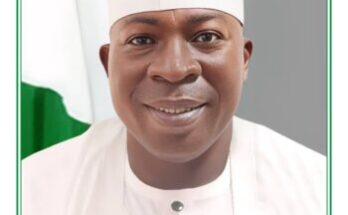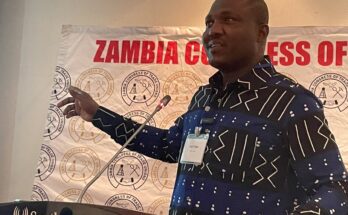Ahmad Makama is the resident electoral commissioner (REC) in Yobe state. He speaks with MUSA M. BUBA on their level of preparedness for the 2019 general elections.
The 2019 general election is few days away. How prepared is INEC towards achieving credible elections in Yobe state?
Yobe state is well prepared and at the moment, I am confident that everything we require is in place while others are on their way. As we speak, most of the non sensitive materials have been received and conveyed to the local governments because that is where they are going to be used during the elections. Our zonal store is in Gombe. Whenever the materials arrived from the headquarters, they send them to us or ask us to go and receive them and we will dispatch them to the local governments. Frankly speaking, we are adequately prepared.
Are there areas that elections may not hold in the state?
There is no area that election will not hold in Yobe state. The only thing is that there are places we will avoid due to security reasons because safetyof live is not guaranteed and we will not expose our men and materials to any security risk. But, we have scouted for alternative areas that are safe and stakeholders will be informed on the changes, accordingly. You could recall that in 2015, the whole of Gulani local government area was made to conduct its elections at Fika.
All the voting population was transported to Fika and in 2016 when we conducted bye-election in the area, the whole of Gulani converged in Bara town. We have 26 registration areas that are considered unsafe, so, we came up with the list in conjunction with our electoral officers and community stakeholders in the local governments. When they brought the list to us, we asked questions, so when we confirmed it is the true situation, we presented the problem to the internal and inter-agency committee.
The committee was the initiative of INEC which is headed by the commissioner of police as chairman and me as co-chairman with other security heads in the state as members. We looked at the list and discussed it extensively. After then we agreed that those areas are currently not safe. We have been reviewing that list. Initially it was 24, recently with the attack on Geidam last week, the number increased to 26. It is likely from now to election time, it will reduce or increase depending on what happens from now till then.
Actually, there are areas that are not accessible but there is no area that election will not hold; we will try as much as possible to ensure that voters are given the right to cast their votes in Yobe state. Whether their areas are accessible or not, they require some sacrifices from their part. If it will cost you a little distance to go, you will do that; people should be ready to do that sacrifice for the interest of their community and the country. There is no place that elections will not hold, except inaccessible areas.
Are there proactive measures from the commission to ensure that centres are provided for them?
Of course, we have since 2010 decided that all our venues for activities would be public places. We will as much as possible avoid private residents or private places as polling units or collection centres. That it must be a public place, for instance if we are transferring venue of election from one place to another, we will make sure it’s a primary school, dispensary or any public building. For instance, the whole of Gujba is not safe right now; depending on what happens between now and election time. The initial arrangement was that the whole of Gujba will converge in Buni Yadi on election days because of the presence of military. We hope they should be able to provide security for the voters, but you know in insurgence, there is no guarantee that anybody can provide security for you. We can only decide to say the whole of Gujba should come to Damaturu and cast their votes in the Stadium but we are not there yet. The current position now is that Gujba local government election is likely to be held in Buni Yadi where we have a large space.
Last time, you complained of unclaimed PVCs; what is the position in the state now?
While the distribution of PVCs is still on, we are still distributing them and will stop on February 8, 2019. So, the situation has improved from the time we spoke. At that time, we had over 170,000 unclaimed PVCs and during the six days exercise which we distributed at ward levels, we distributed more than 100,000 PVCs. Now we are left with about 70,000; I believe that since then, the number should have come down by now. From now to election, people will collect their PVCs.
You have been collaborating with stakeholders and religious leaders to preach peace in their wards. Are you convinced that it is working?
Yes, surprisingly since our last meetings, they have been doing that. We are quite impressed with what religious leaders are doing. We met recently and the following Friday, almost all were preaching it in their Mosques to conduct themselves peacefully and also ensure they collect their PVCs.
The traditional rulers are also doing similar things because they have more areas of influence. They have village, district heads, etc. Our level of mobilisation is alright and quiet impressive. All our stakeholders are participating.
There was a clash among supporters of senatorial candidates in Potiskum despite the peace accord. How would you react to that?
Traditionally, zone ‘B had always been hot when it comes to election. This is not the first time we are experiencing this. The news came to us during security meeting when the commissioner of police was informed; we discussed it extensively and some measures were taken. The committee then suggested that I should immediately go to Sunshine FM Radio station in Potiskum and interact with the communities in a phone-in programme which I did, appealing to them to as much as possible behave maturely and not do anything that will disturb the peace and that politicians should not engage thugs during or after election or engage in hate speeches. I think we interacted very well and I reported what I did to the committee and we are still on it. We will go to the next level by inviting the people we think are responsible for that. During the signing of accord, mostly only governors are invited, but here in Yobe, we came down to other aspirants to sign the peace accord and it was because of zone B we did that. If we succeeded in meeting them, we will draw their attention to what they signed and admonish them to maintain the peace.
Tell us about tracking your sensitive materials.
We are more interested about our sensitive materials that will be sent to local governments on the Friday before that election. Those vehiclesare going to be tracked from here in our systems. You will see them to where they are going even if their vehicle stopped and this is a new imitative by INEC. It was done in the Osun governorship elections, so it will happen across the 36 states of the federation including the FCT.
You delisted names of deceased and aliens from the voter registers. How many are they?
Yes, we delisted some names in all the 1,714 polling units in the state during the display exercise. The essence was to delete from the register names of people who are not supposed to be there due to death, under age, and non Nigerians; so about 2,500 deaths were found and delisted.
Were there issues of double registration?
We didn’t get any double registration but when we came to clean the register, it was another process altogether. From that one, the central ICT Department Abuja will apply their technicality to delete multiple registrants. After that, you will get the clean and comprehensive register. My call to all voters is to play the game according to the rules.So far, so good, all things are okay except what is happening in zone B of which security will take proactive measures to help and makeall centres safe for elections.



